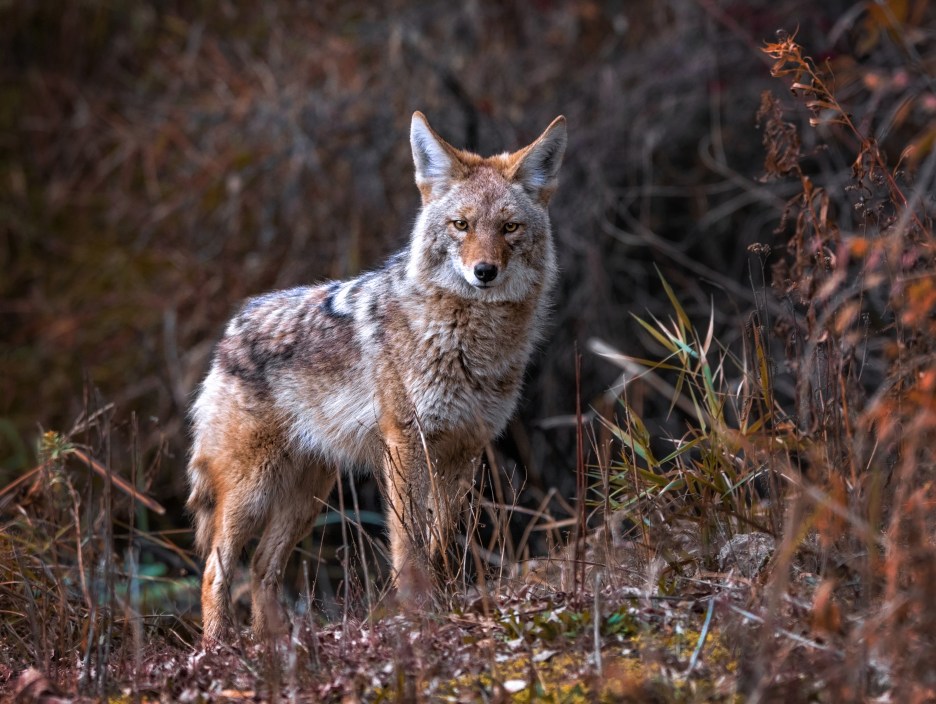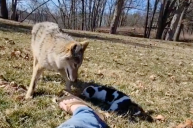What started as a walk in the woods ended with a fight to the death for a Rhode Island hiker. On February 9, a 58-year-old man was attacked by a coyote, which bit him on the leg before he was able to grab it, pin it down, and strangle it with his bare hands. The coyote died from suffocation, said Mark Vieira, the police chief in Johnston, Rhode Island, where the incident took place.
Generally, coyotes are wary of people and typically avoid interaction with humans. Though it was unclear if the coyote had been acting erratically prior to the attack, authorities picked up the animal for rabies testing, and the Rhode Island Department of Environmental Management (DEM) since verified that the coyote was rabid and have implicated the same animal as having bitten a dog walker in Scituate, Rhode Island on February 8.
The rabies virus is passed from one animal to another through scratches or bites and is common in bats, though the DEM has received only two reports of rabid coyotes since 1994. A post-exposure vaccine can be administered to deal with the infection, preventing it from becoming fatal, provided it's administered quickly, as was the case with this hiker.
Local authorities recommend that animal owners verify that their pets are up to date on their preventative vaccinations and avoid contact with wild animals.
"Along with my peers at RIDOH, I urge anyone in Scituate and Johnston who may have come into contact with the coyote to call the RIDOH Infectious Disease division," Rhode Island state veterinarian Dr. Scott Marshall said in the department's press release regarding the incident. "If pet owners in these two communities believe their pet has interacted with coyotes, call or visit your veterinarian to make sure your pet's rabies vaccination is current. Rabies is virtually always preventable with the vaccination. Animal owners also need to report the exposure to your local animal control officer."
READ MORE: Watch: Coyote vs. Whitetail Buck—Who Wins?




